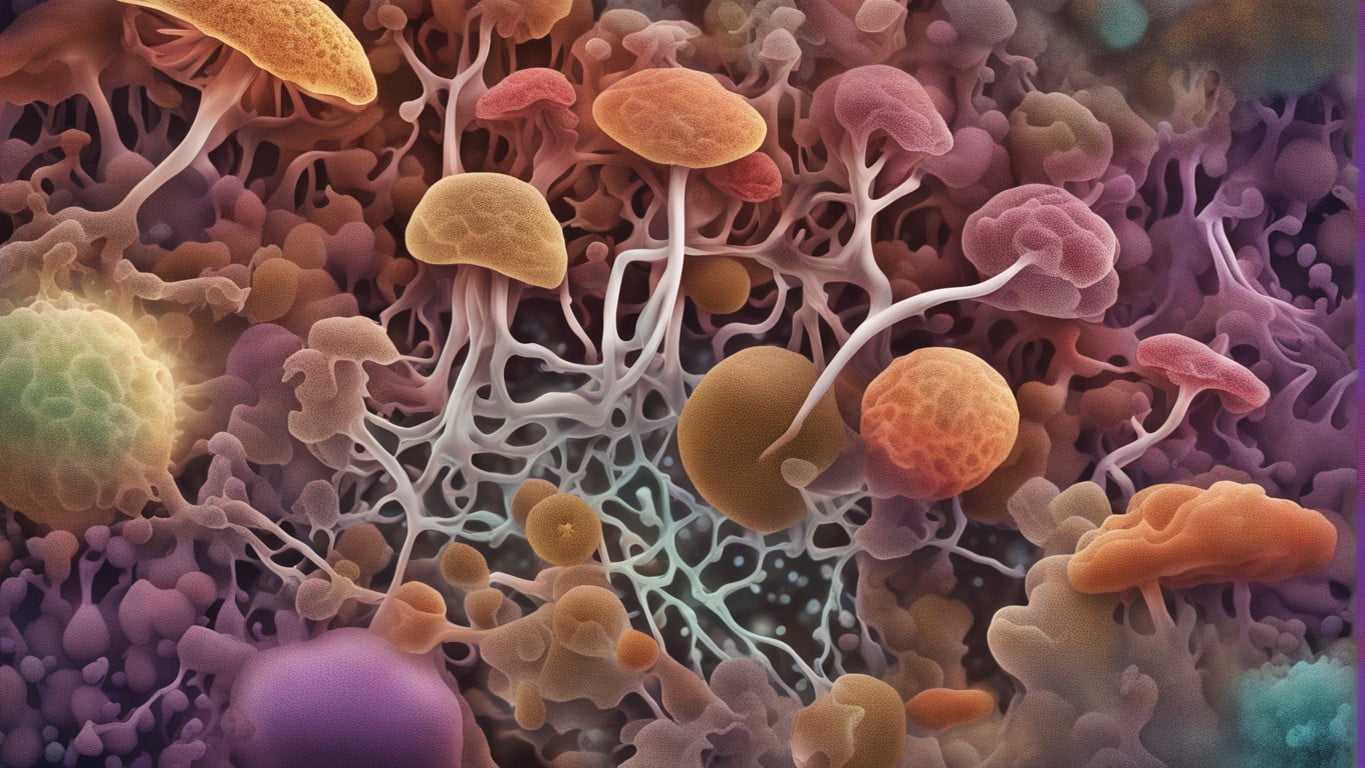
Fungal Microbiome: The Regulatory Role of Peptide YY
In the quest to better understand our bodily systems, especially in the context of longevity, researchers have identified an unexpected role for Peptide YY (PYY). This hormone, commonly associated with regulating appetite, appears to also function as an immune regulator of our fungal microbiome. Specifically, it plays a pivotal role in preventing the transformation of Candida albicans, a yeast in our microbiome, from its benign form to a more virulent state. This intriguing discovery opens a new perspective on the integration of body functions and the potential of peptides.
The Bottom Line
This short chain amino acid serves dual roles, as both an appetite controller and as an immune regulator of the fungal microbiome. This dual functionality has implications for our wider understanding of health, fitness, and longevity, connecting to themes of gut health, supplements, and immune function.
Peptide PYY and the Microbiome: Dual Roles with Long-Lasting Implications
The story of this chain’s newly found function evolved through comprehensive collaboration staged by scientists from multiple universities. Interestingly, the hormone’s full, unmodified form, composed of 36 amino acids, proves efficient as an antifungal peptide when secreted into the gut by Paneth cells – immune cells in the small intestine. This capability allows it to impact the mycobiome, the fungal aspect of the gut microbiome. Contrastingly, when enzyme-modified by endocrine cells, it transforms into a hunger-controlling hormone that communicates with the brain.
This intriguing dual function prompted further exploration, with eventual realization that PYY’s full form acts as a potent and specific antifungal agent, but doesn’t affect most bacteria. In a fascinating twist of nature, PYY’s structure parallels a peptide called magainin 2, commonly found in the skin of the African clawed frog, recognized for its bacteria and fungi-fighting abilities.
Fungi, Peptide PYY, and Potential Health Implications
Focusing on Candida albicans, a yeast found in our bodies that can morph into a harmful virulent form under certain conditions, the scientists discovered that PYY effectively inhibits and destroys the harmful form while leaving the benign yeast unaffected. The potential health implications of this finding are noteworthy, particularly considering conditions like Crohn’s disease, which often involves dysfunctional Paneth cells. PYY production irregularities could potentially lead to excessive fungi proliferation, triggering disease onset. Consequently, this peptide could serve not only as a hunger hormone but also an invaluable health-regulating agent.
Key Takeaways
- It has a dual function, acting as both an appetite controller and an immune regulator of the fungal microbiome.
- The unmodified form of PYY is an effective antifungal peptide, impacting the mycobiome, the fungal part of our gut microbiome.
- Naturally produced by our bodies, could control the growth of harmful forms of yeast like Candida albicans, playing a significant role in maintaining gut health.
- Disruptions in PYY function, potentially due to diseases like Crohn’s, might contribute to excessive fungal growth and disease.
- This research contributes to the understanding of peptides and their significance in human health, lending further support to the idea of peptide supplementation for improved health and longevity.
Source Article: https://www.nutraingredients-usa.com/Article/2023/08/14/peptide-yy-appetite-hormone-may-also-be-immune-regulator-for-the-fungal-microbiome



